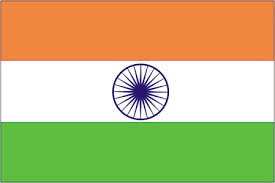STATEMENT BY AMBASSADOR ANUPAM RAY AT THE HIGH-LEVEL SEGMENT OF THE CONFERENCE ON DISARMAMENT, GENEVA, 2024, 26 February 2024
Mr. President,
It is an honour to address the High-Level Segment of the Conference on Disarmament in 2024 under the Presidency of Indonesia, a fellow G-21 country, and that of Ambassador FebrianRuddyard.
The Conference on Disarmament convenes for its current session in very difficult times. It meets at the intersection of short and long-term geopolitical stresses that have resulted in conflict and war. It meets amidst uncertainties and frictions arising from the expansion of the spectrum across which coercion can be deployed; from an increasing number of domains of conflict; and from the deployment of emerging technologies in warfare. All this takes place as the disarmament and arms control agenda laid out in 1978 by the General Assembly in its First Special Session on Disarmament remains work in progress.
India believes that the current situation validates the importance of a body like the Conference on Disarmament in the global security architecture.
Peace can be fragile. The Conference’s work of negotiating legally binding instruments that inter alialimit weapons and their use; reduce the chances of escalation; and restrict means and methods of warfare; can contribute to the strengthening international peace and security.
The importance of negotiation, of compromise, and of dialogue is more necessary than ever before to fight off the challenges to our collective security.
Mr. President,
India is committed to multilateralism and multilateral institutions and to the ideas of compromise and collective effort that underlie them.
India is committed to advancing the substantive work of the Conference on Disarmament.
Mr President,
India also believes, in the words of Prime Minister Narendra Modi, that "This is a time for peace and brotherhood, a time to move together, a time to move forward together.We have to overcome the global trust deficit and move forward on human-centric thinking.”
Mr President,
India had the honor to preside over the proceedings of this Conference immediately before you.
Our commitment to the way of peace, to multilateralism, to building trust, and to compromiseguided our efforts during the our Presidency.
Mr President,
The Conference has not been able to conduct substantive negotiations on legally binding instruments for a quarter of a century. The reasons, procedural and substantive, for which it has been unable to do so are understood by all.
That does not however detract from the determination of most delegations to the Conference to focus on convergences rather than divergences. The importance of finding common ground through compromise is acknowledged by most member States.
India places on record its appreciation for the flexibility demonstrated by these delegations during its efforts to find compromise during its Presidency.
We call upon those who have not joined consensus on the Programme of Work for the current session to demonstrate flexibility and put this Conference back to work.
Mr. President,
India attaches high priority to the CD as the world’s single multilateral disarmament negotiating forum, as mandated by SSOD-1 and reaffirmed most recently in UNGA Resolution 78/61.
We note with appreciation that the Conference was, in 2023, able to resume, under Hungarian presidency, and with the cooperation of all delegations, its practice of adopting a substantive report. We also note that the resolution on the Conference on Disarmament was adopted by consensus by the 78th General Assembly.
Mr. President,
India is committed to the goal of universal, non-discriminatory and verifiable nuclear disarmament. We have, through our Working Paper CD/1816, submitted to the Conference in 2007, called for complete elimination of nuclear weapons through a step-by-step process underwritten by a universal commitment and an agreed global and non-discriminatory multilateral framework.
India reiterates its call to undertake the steps outlined in the Working Paper, including negotiation in the CD of a Comprehensive Nuclear Weapons Convention.
Mr. President,
Without diminishing the priority we attach to disarmament, India supports the immediate commencement of negotiations in the CD on a Fissile Material Cut-off Treaty (FMCT) on the basis of CD/1299 and the mandate contained therein. This remains the most suitable basis for negotiations.
India, as a responsible nuclear weapon State, is committed as per its nuclear doctrine to maintain credible minimum deterrence with the posture of no-first use and non-use against non-nuclear weapon States.
Mr. President,
Prevention of an Arms Race in Outer Space (PAROS) is another long-standing item on the CD’s agenda. India looks forward to an early start of negotiations of a legally binding instrument.
Mr. President,
Indiahas participated constructively in the Open Ended Working Group on Space Threats inspite of its reservations which are contained in the relevant records and will continue to do so.
We note that the UN Disarmament Commission adopted, by consensus, a report on Transparency and Confidence Building Measures in Outer Space.
We are also actively engaged with the Working Group on strengthening of the Biological Weapons Conventionestablished pursuant to the IX Review Conference of the BWC.
India will participate constructively in the Group of Governmental Experts on Lethal Autonomous Weapons Systems, as it begins its work for the next three years on the basis of a revised mandate.
India accords high importance to advancing the work being undertaken on conventional weapons, including small arms and light weapons, in relevant platforms.
Mr. President,
In line with the SSOD-1’s emphasis on promoting expertise in disarmament and in empowering our younger generations, India hosts a fully funded three-week Annual Disarmament and International Security Fellowship Programme covering an entire range of key disarmament and international security issues.
I am pleased to inform you that the 4thedition of the Annual Fellowship Programme was successfully held in New Delhi from 22 January – 9 February 2024, in which young diplomats from 24 countriesparticipated.
I thank you, Mr. President.












